“In hardcore everything is just full-on in the red and clipping!” – An interview with Somniac One
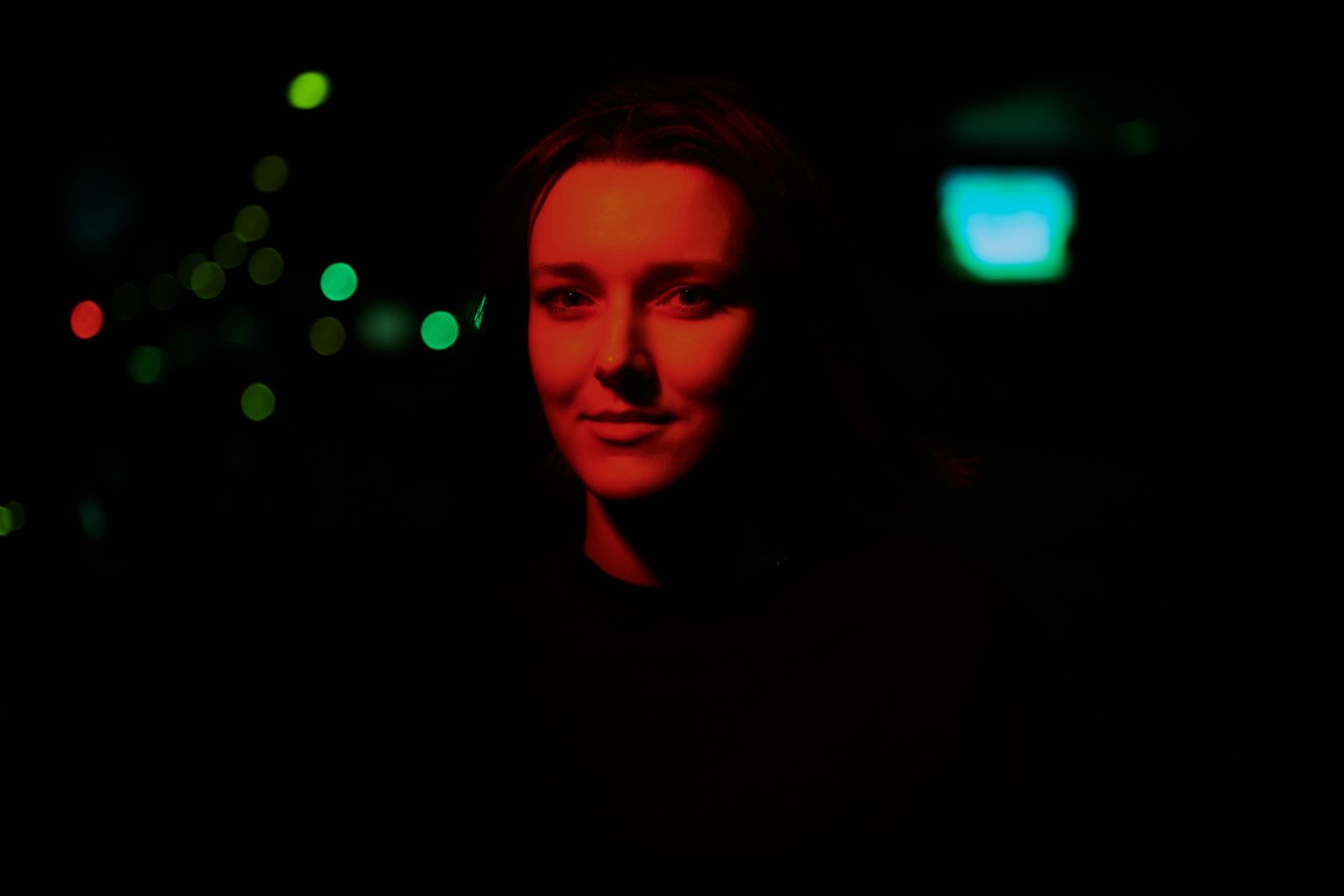
I know that you were born in Vilnius, but where did you grow up and spend your childhood?
I spent most of my childhood in Vilnius. My grandmother worked at a theatre when I was little, where she was the costume lady and she would always take me there. Since my parents had to work hard and a lot, she was my main caretaker when I was little. Lithuania had just gained independence then, so life was really hard for everyone. Nobody had much, so we did not feel like we were poor… just that my parents needed to work a lot. My father worked in the military, so we also travelled places. We lived in the US for a year, and I spent two or three of my teenage years in Estonia. After that we returned to Vilnius where I finished high school.
And did those different places have and influence on how you hear music or connect to it, what music means to you?
I think so, yes. The travel experience and the fact that I wasn’t always able to quickly find friends, made music a form of refuge for me. I wanted to create something musically very early on, I just didn’t have the means to. I was ten when I first felt that I would love to make music.
You live now in Holland – was it accidental that you produce hardcore and moved to Holland, to the capital of hardcore techno?
When I was a teen, around fourteen or fifteen, I used to listen to set recordings from big Dutch festivals like Q-Base or Defqon.1 and I thought the Netherlands was such a cool and impressive country, I wanted to live there one day. Years later I moved there for my studies and I did not find it as crazy impressive as I did when I was a teen: people here also lead regular lives, they don’t just rave all day! Somehow it happened, and I am still here. This was also due to my love life. I now live in the South-West, in a small town close to the sea, half an hour away from Belgium.
How do you feel about the Netherlands, how is life compared to your experiences in other cultures? What did you study in the Netherlands?
I studied Sociology and I did my master’s here. The first thing that comes to mind regarding the Netherlands is the orderliness, how organized and how meticulous everything is. There is very little chaos in this country, for instance if you look at the landscapes. And to be honest, I used to find that quite oppressive at times. However, now that I’m older, I’m starting to appreciate these features more. As my own life is becoming ever more chaotic, it is nice to have the orderly surroundings for balance. What I also really like is the lack of apparent social inequality.
When I was a teenager, we went frequently to Holland, especially Amsterdam to go to concerts and coffee shops. Everything seemed so liberal – drug use, public youth work, health- or cultural politics, for instance – much more liberal than in Germany. When I came back this year, many years later, I was a bit shocked about this smart stuff happening there, that you can only pay with card… everything is digital and you are tracked all the time, that seemed ambivalent to me. Though it fits when you consider that the Netherlands have always been this place of entrepreneur spirit.
It is the birthplace of capitalism. You have to realise this when you look at these tolerant, more open-minded aspects – that it is often due to pragmatism, pragmatism is often the first concern here.
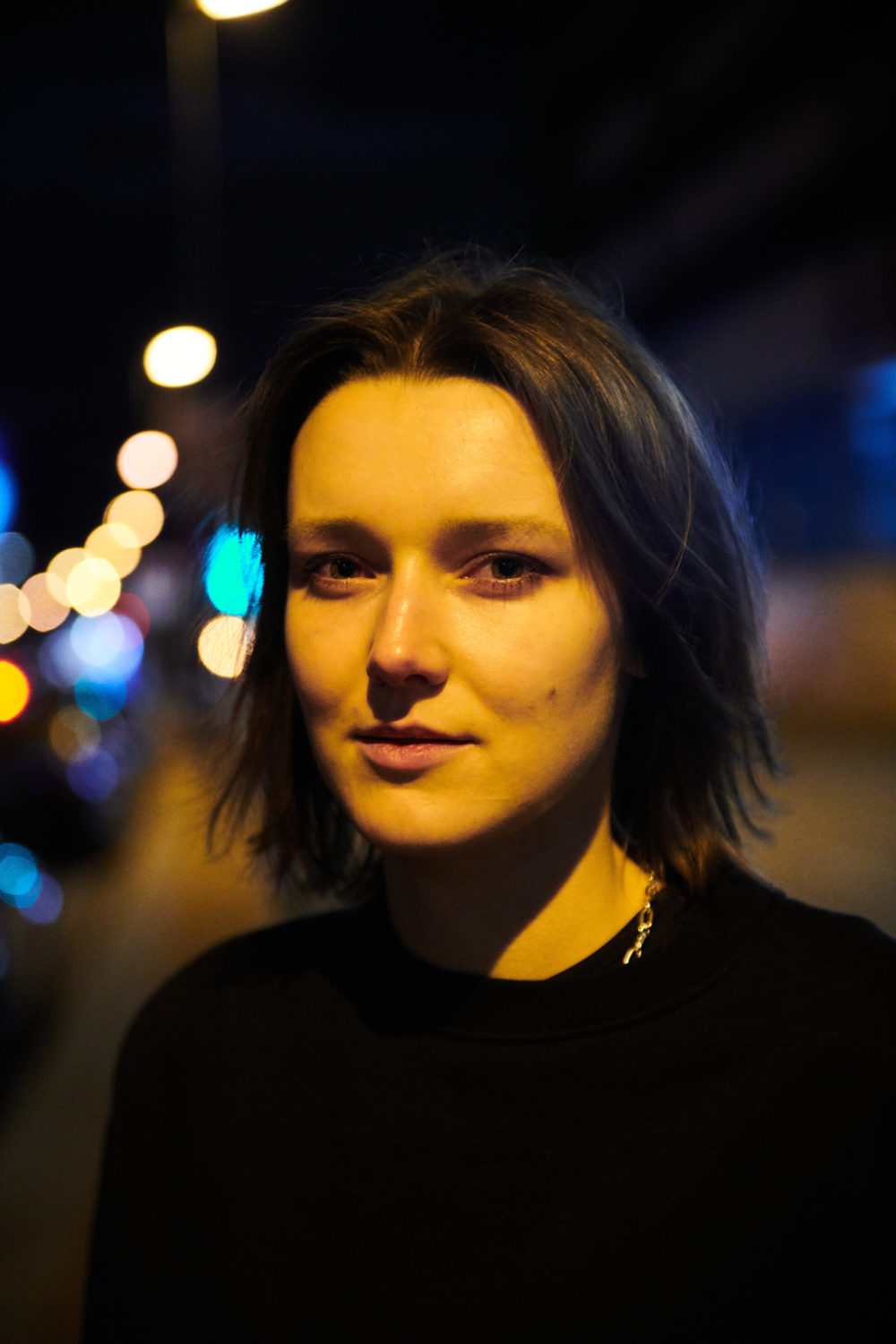
“The internet was my first music scene”
How did you get in touch with techno or hardcore?
The internet was my first music scene, that is how I discovered music. My first interaction with electronic music was via commercial radio, that’s where I heard those sounds for the first time. And then a deeper dive happened when a classmate gave me a music CD which was rerecorded by her brother. It contained some hardcore, hardstyle and drum & bass. I was probably eleven then. This was the first time I heard this more underground and harder sound. As a child of the internet, I started searching, digging deeper. That’s how I began discovering the music I love and produce now.
Later on, I moved to Tartu, Estonia and went to my first drum & bass party there when I was 14. My parents did not want me to attend raves. So, there were times when I’d run away from home just to do that.
How did the way you produce music change over time?
When I started out, I knew very little about how a good mixdown needs to be done. Also, things changed stylistically: I produced mainly trance back then, and a bit of hardcore and some breakcore. I released my very first hardcore track in 2008 under a different alias and had a few digital-only releases as ‘Mother Mary‘. A big difference is that I became more focused in that regard. If you care about leaving some sort of a mark in a scene you have to focus. And I decided to focus more on hardcore. The thing with hardcore is that it is one of the most difficult electronic music genres to produce, and it takes a long time to master it. Everything is so noisy, so loud and distorted. So, how do you make something so distorted sound good and clean at the same time? That is really difficult! So, at one point I stopped producing trance: I got sick of it, it’s a cheesy genre, and for some reason I felt the need to be super underground. So, I began only producing hardcore. At this point, the quality of my productions then just dropped, it plummeted! It is a completely different approach to music production. Normal sound engineering advice is that you don’t go into the red and keep everything under zero dB and in hardcore everything is just full-on in the red and clipping!
So, many producers emphasize the relevance of the kick drum for hardcore, but what defines to you the sound of hardcore or industrial hardcore?
That is a difficult question, I thought a lot about that as hardcore is a very diverse genre. For instance, it can range from 90 BPM to 1,000 BPM, so in terms of speed there are no boundaries. You said that hardcore is more kickdrum focused, which is true, but there are other producers who say that the kick doesn’t really matter. It is easier to talk about it in relation to other music genres. Such as: ‘this does not sound like techno but hardcore because the sub in the kick drum falls like this and not like that…’. It is difficult to define. And what is industrial hardcore then? Nowadays it’s just an umbrella term for everything that is not Frenchcore, up-tempo or mainstream hardcore, or anything that is more alternative compared to the sound played on main stages at big hardcore festivals. Honestly, I’m not a huge fan of the term nowadays as it does not define a specific sound but rather refers to a specific group of people and a specific set of artists. We’re all good friends and we appreciate each other’s music, but we don’t all represent the same kind of sound.
What about the name of the genre – industrial hardcore? As one of the precursors of hardcore is industrial music, so one might think that it is sonically somehow related to industrial music and its sounds… Is that not the case?
That is a relevant aspect when you consider some labels, like Meta4 or Symp.tom. So yes, there is some really industrial-industrial hardcore out there!
What about your style?
I try to make what I like and I try to focus on a specific tempo range, that I like to dance to, which is somewhere between 130 and 160-170 bpm. When it comes to my style, others say I have a specific sound of my own, but I personally don’t know what it is. I just make what I want to hear.
“I entered the industrial hardcore scene when it started to die”
When I researched the Berlin gabber scene around 2011 it was having a major problem with reformation, hardly any new or young people were joining the scene, I thought it would die soon; and some years later this revival of hardcore was happening. How did you experience this new wave of hardcore in the past years?
I don’t know. Before 2010 there was a golden age for non-mainstream hardcore and industrial hardcore, especially with millennium hardcore, and darkcore, hardcore that was very slow and dark as the name suggests. At that time there was already a really high music production standard… It is still there on some releases, like what the Outside Agency is putting out, but for some reason this tradition is not getting a high influx of new producers. Maybe the bar is too high, it’s too difficult for people to get into it? I entered the industrial hardcore scene when it started to die and for a while, I was one of the few producers still making that kind of sound, that mid-tempo thing that I’m now known for. Nowadays it is still the same people doing it, though some producers completely switched to more viable genres or started producing more mainstream hardcore. The new artists that I am familiar with seem to come from a different direction: techno has become very hard recently. I get booked for those kind of harder techno events with my hardcore now, and others seem to be interested in taking a similar approach.
Are there other genres or music styles that you enjoy?
I always liked more abstract and experimental electronic music like IDM and nowadays I like to listen to ambient. Today I also have connections to the techno scene, and I also play and produce techno.
Do you see yourself more as a DJ or as producer?
In the beginning I only played live, I spend a month preparing every live set, but there were all sorts of technical issues and I decided that it wasn’t worth it. So now, I only DJ – and I love it!
But you produce music as well, are mainly known for your productions…
Yes, exactly. During the week I produce music and on the weekends I DJ.
How do you stay healthy and happy? Because this kind of life can also be stressful…
I haven’t figured that out myself. Of course, we had the pandemic and this break of almost two years during which I spent all this time at home: I slept a lot, I ate really well, I haven’t gotten sick even once in that two-year period. Now, after things got back to normal, I leave home Friday morning or afternoon and come back late on a Sunday after multiple flights and train rides and on very little sleep. Say, this upcoming weekend in Germany, I’ll be playing very late slots that start around five or seven I the morning. And I am still tired on Tuesday or Wednesday. I hardly drink any alcohol and I try to sleep as much as possible, I try to eat as well as I can. The problem is that when I come home, I still need to be able to produce music. After such weekends it’s hard to find the energy and inspiration to do that. I try to work on my productions every day as I have pressing deadlines for upcoming releases. I can’t go into too much detail about it now, but I can tell you that I am starting a label, with its first release sometime at the end of summer. I am also preparing a solo release for one of my favourite techno labels.
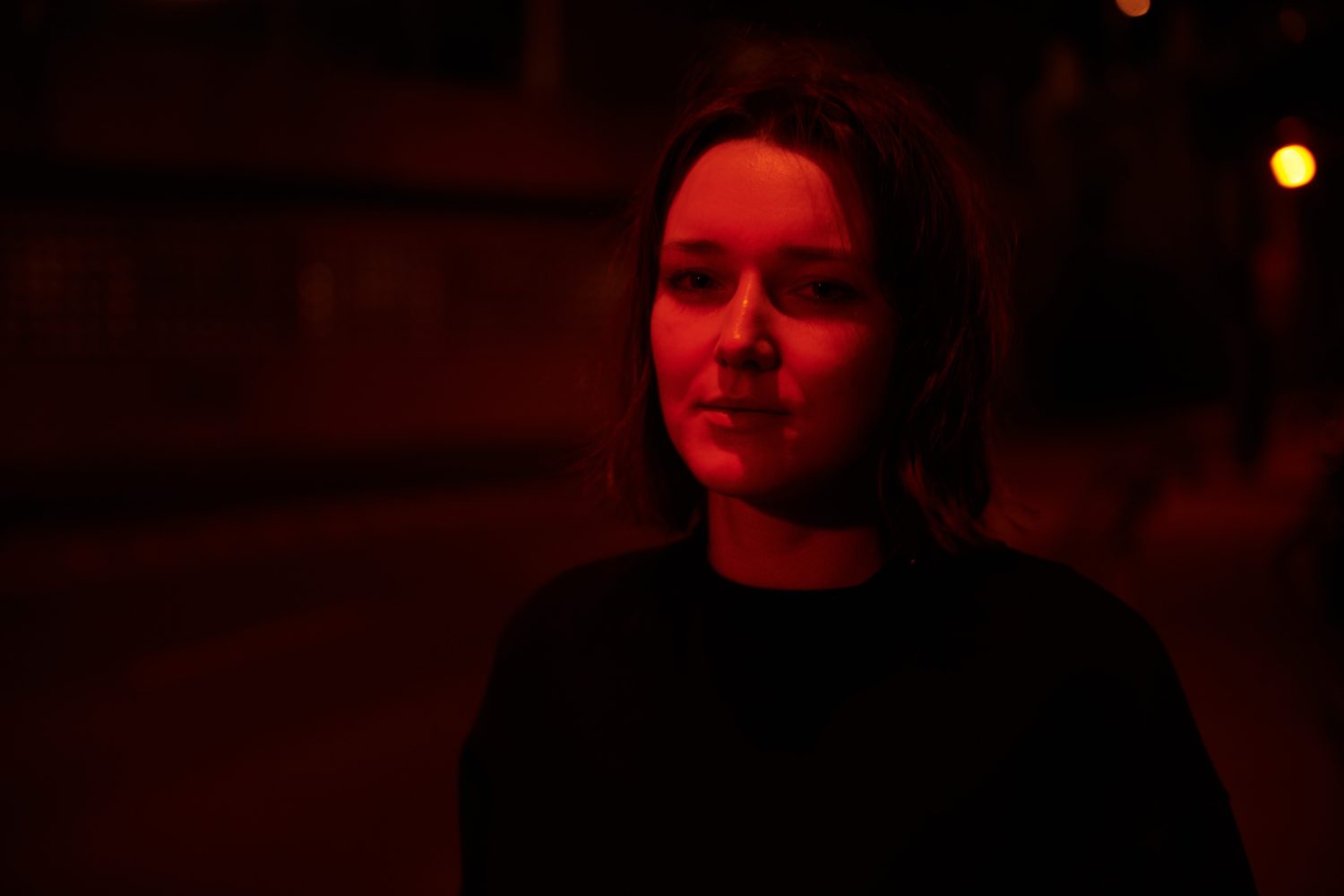
“Most labels I approached did not listen to my demos”
You released on great labels like Meta4, PRSPCT or Love HZ – why did you decide to start your own label?
Because I also produce music which doesn’t fit on PRSPCT or Meta4. I’ve sent out demos, but most labels I approached did not listen to my demos… And then I thought: maybe I should just release these tracks myself. As with most of my previous releases, I’d already gotten into the habit of arranging artwork or mastering myself. So, I can do all of those things myself, so why not start my own label, just trying it out? Many labels also do not pay royalties to artists, for some it is too difficult to calculate financial statements, and to keep track of sales of all the hundreds of releases in their catalogues… Artists often do not get paid at all, or they do not get their fair share. So, from this perspective it makes a lot of sense to just release your own music these days. I also feel that now I have a big enough platform of my own and I can reach my fans so they will know where to buy my music…
Yes! That’s very good. What are your experiences when you DJ at those huge hardcore raves? How is the festival sector or music industry for hardcore developing these days?
That’s an interesting question. I am about to play my first big festival this summer after a two-year break. It is a bizarre experience considering the fact that in most places of the world these are underground scenes with a small following, but somewhere in the Netherlands you might have 30,000, 50,000 or 70,000 people attending a single event, with an audience coming from all over the world. It is a super professional industry, which is a bit surprising for such a music genre. I think my first big festival gig was at Defqon.1 in 2017 and since then I have played there almost every year.

“Hooliganism feels more like a stereotype from the past”
I have never attended such a big hardcore event… How is the atmosphere? Is it peaceful and respectful, considering all those scandals and stories about raves during the heydays of Dutch hardcore?
We all know these stories about racist incidents from the past, but I myself have never experienced anything like that. Today these events seem peaceful, I have not seen a single fight, neither at a PRSPCT event nor at any other hardcore party in the Netherlands. Maybe it is also a special segment within hardcore that I interact with? Especially industrial hardcore – at these stages or events, the people are just the most peaceful and laidback. Hooliganism feels more like a stereotype from the past… though still today the majority of the crowd is male, with shaved heads, maybe that’s why these connections are still made… But personally, I never witnessed any of that.
You played most of these big events like Defqon.1 or Dominator… These networks of Dutch and international franchise festivals became ever more complex in the past years – who bought whom and so on… So, are we dealing here rather with a large, entangled entity or with single event organizers?
The trend has been that bigger companies buy up smaller event organizations, and that’s also the rumour for Dutch hardcore… that only one entity might be in possession of most hardcore events. I can’t confirm this, but the rumour is that it is in the hands of one entity.
“80 percent of my followers on social media or Spotify are male”
Let’s come back to the shaved heads, not only men have a sort of uniform or certain look in hardcore, also the few female DJs who play the big stages today somehow have a uniform look. Some sort of sexy-standard-look… sexy from a male perspective though.
It is a widely known secret that most of these women don’t make their own music. In a predominantly male scene – 80 percent of my followers on social media or Spotify are male – a female with such looks could probably become a successful project in a male dominated environment like this. I’m seeing a similar trend in other electronic music scenes now though.
Most of the female DJs and producers in techno are super beautiful and have likewise this sexy-style…
Of course, but with a different aesthetic. In techno they look more like traditional runway models, in hardcore the style is a bit different.
What about other types of female or non-binary artists – like yourself? Is there more diversity today? Here in Vienna, you played for instance together with Kilbourne…
I don’t know, there are not a lot of new artists emerging in general, or at least in my segment of hardcore. I think that hasn’t changed very much in general. One might think that the scene must be misogynistic if there are so few women doing it, but I have not experienced that. And also, Ashe – Kilbourne, has been welcomed very warmly in the scene, I think… But you’d have to ask her!
So, hopefully you will be a role model for many female hardcore producers to come!
I can be the proof that you don’t have to be very sexy to make it in hardcore.
And do you think that artists should use their visibility and media attention for political actions or personal statements?
If you truly believe in it and it is very important to you, then you should say it. If you don’t do it because you are afraid your fans won’t like it, then it’s a problem. I wrote a few statements on social media about the war in Ukraine when it started, because I felt so strongly about it… and I received messages and comments saying that I should just focus on my music and not talk politics. That made me want to speak out even more!
When you look at a skier, a motor racer, or other professional sportspeople in general, their clothes are full of logos, their whole body is a profit orientated advertisement. So, I think one might as well have a message, promote other values.
Yes, that is a good example. Another side of the coin is that nowadays artists express their opinions mostly via social media. And that is such an imperfect platform for debates. We know how the algorithms work, they favour content that triggers intense emotions, and thus rational debate can easily be lost in a sea of outrage. And it seems so easy to cancel someone in the internet on unproven grounds, too. That’s the other issue.
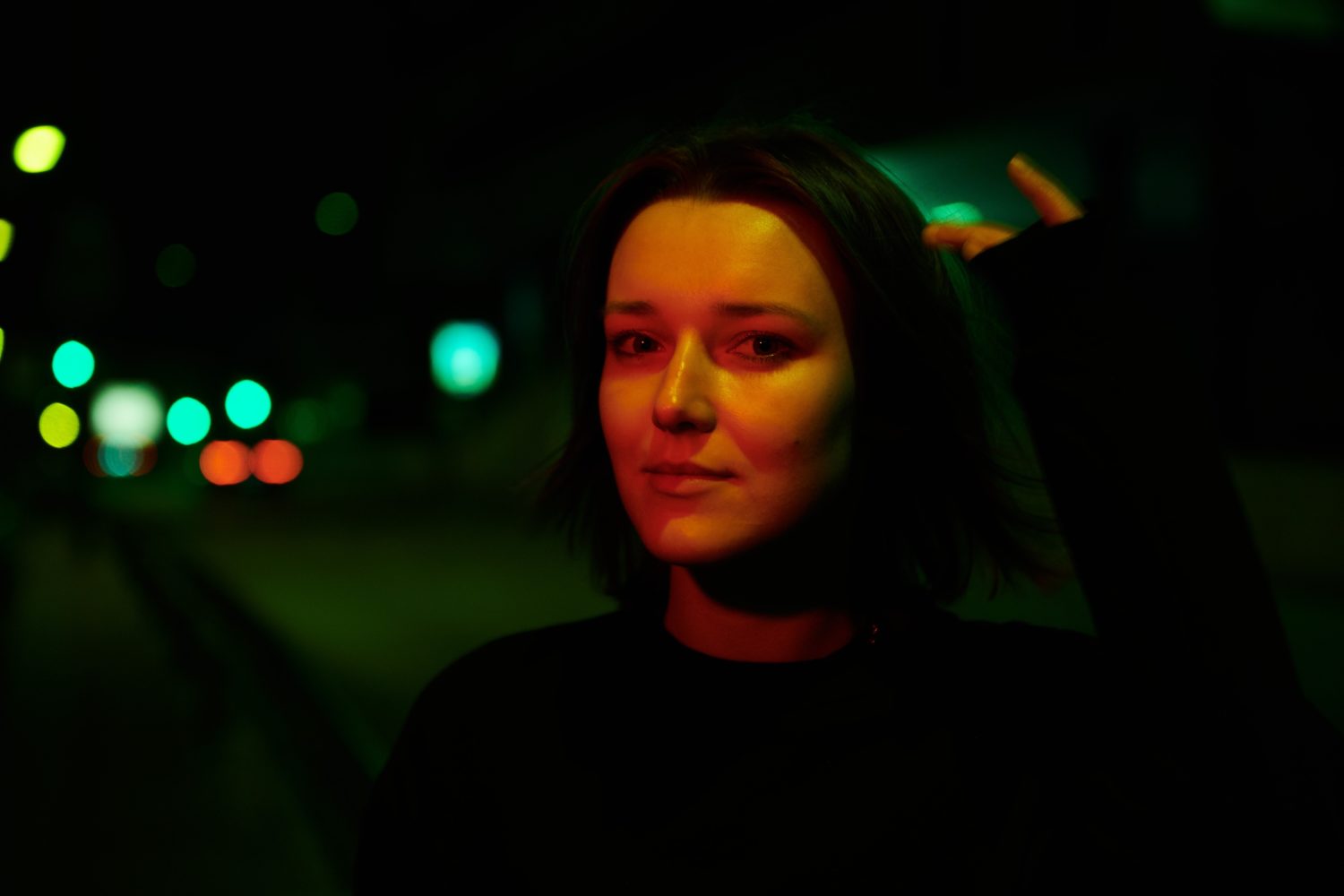
I am also curious where this will lead us. At the moment we are in general in a difficult situation, a moment of crisis, though maybe every generation thought that, but I feel such times maybe demand more outrage. At least we have the music, we can dance and build up some energy, get rid of aggressions and frustrations, also thanks to artists like you. I am very excited about your label and upcoming releases, thank you for taking the time and keep me updated!
Exactly. I hope you can come to Dominator it is really an experience you can’t miss – you have to see it!
Thanks much for the interview!
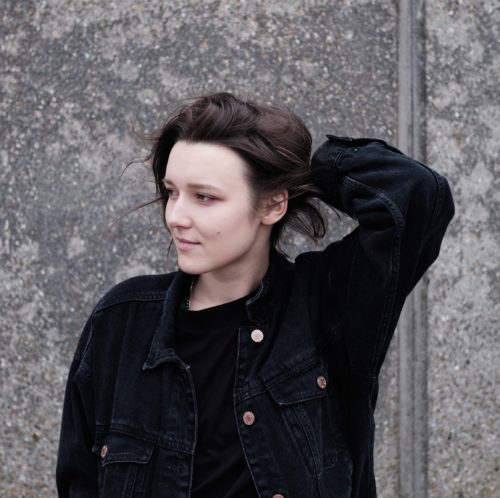
Somniac One